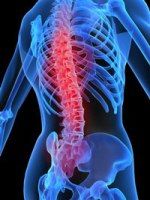NLS-101 Phase II clinical trial starts
Advertisement
NeuroDiscovery Ltd announced that it has commenced the Phase II clinical trial for NSL-101 for periodontitis. The study is a 50 patient, double-blind, randomized, controlled evaluation of the analgesic efficacy, anti-inflammatory activity and safety of NSL-101 gel compared with the standard analgesic used in the scaling and root planing procedure for the treatment of periodontitis. The trial will take place at the Peruvian University of Cayetano Heredia in Lima. Scaling and root planing is usually the first dental treatment a patient receives for periodontal disease. The procedure removes all of the unwanted irritants under a patient's gums in an attempt to eliminate inflammation and infection.
The primary objective of the trial is to investigate the analgesic efficacy of a topically applied dose of NSL-101 prior to the procedure, compared to the application of the standard lidocaine gel. The secondary objectives are to ascertain NSL-101's anti-inflammatory action and safety compared to the conventional gel. Subject to recruitment, it is anticipated that the trial will finish in Q1 2008 and that results will be made available in Q2 2008.
NeuroSolutions has collaborated with Ampika Ltd to develop further knowledge of Peruvian medicinal plants with a view to capitalising on opportunities offered by herbal formulations. NSL-101 was identified from the Ampika database of medicinal plants as a natural product formulation that is effective in alleviating the symptoms of dental pain. The product has been used in documented, empirical form for more than 5 centuries as a dental analgesic in Peru, with anti-inflammatory and disinfectant effects, in chewed form, with or without other meals. The detailed studies of its electrophysiology demonstrate that a preparation of NSL-101 inhibits the discharges of the damaged nerves associated with pain. NeuroSolutions owns NSL-101 via a worldwide exclusive license.






















































